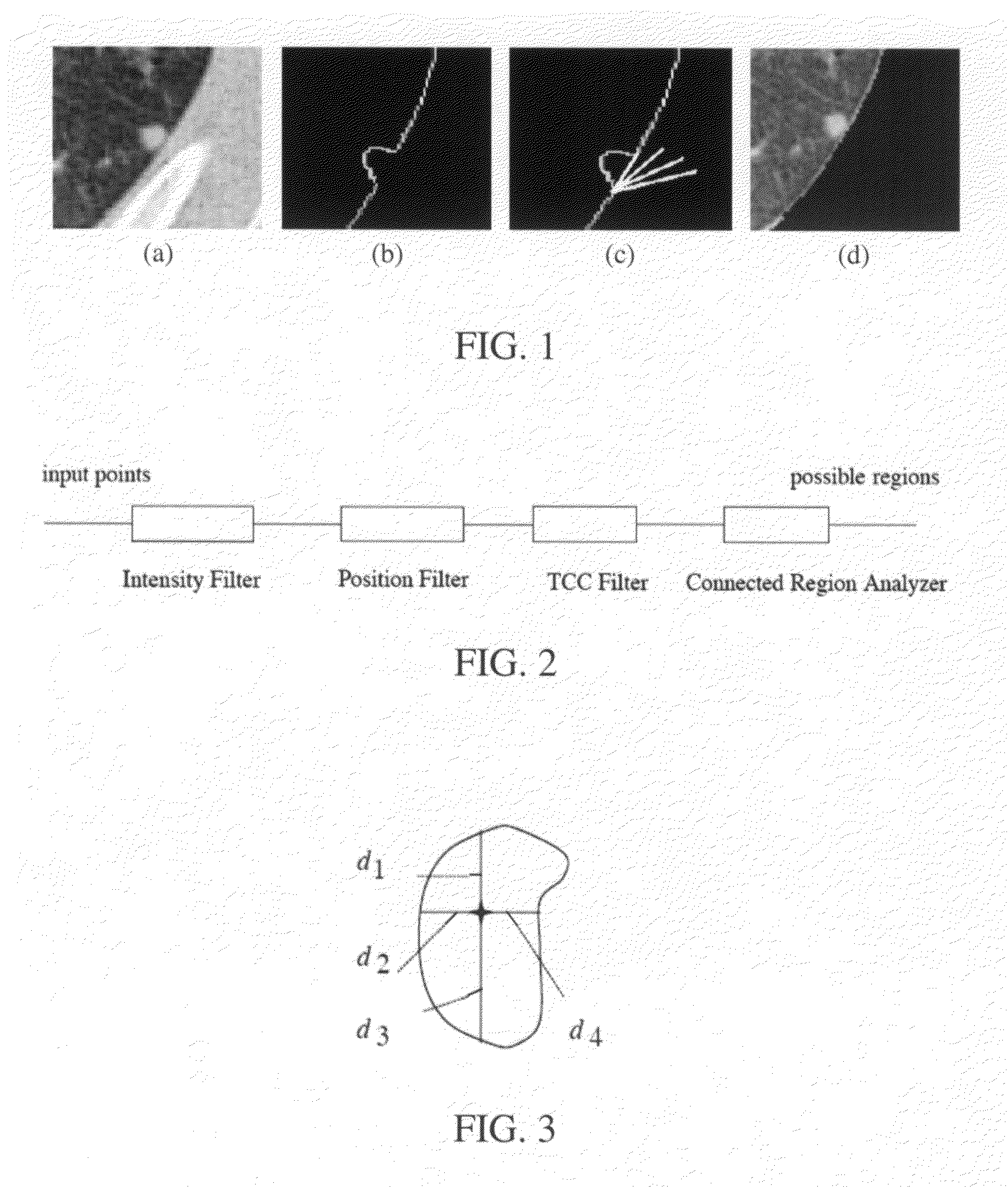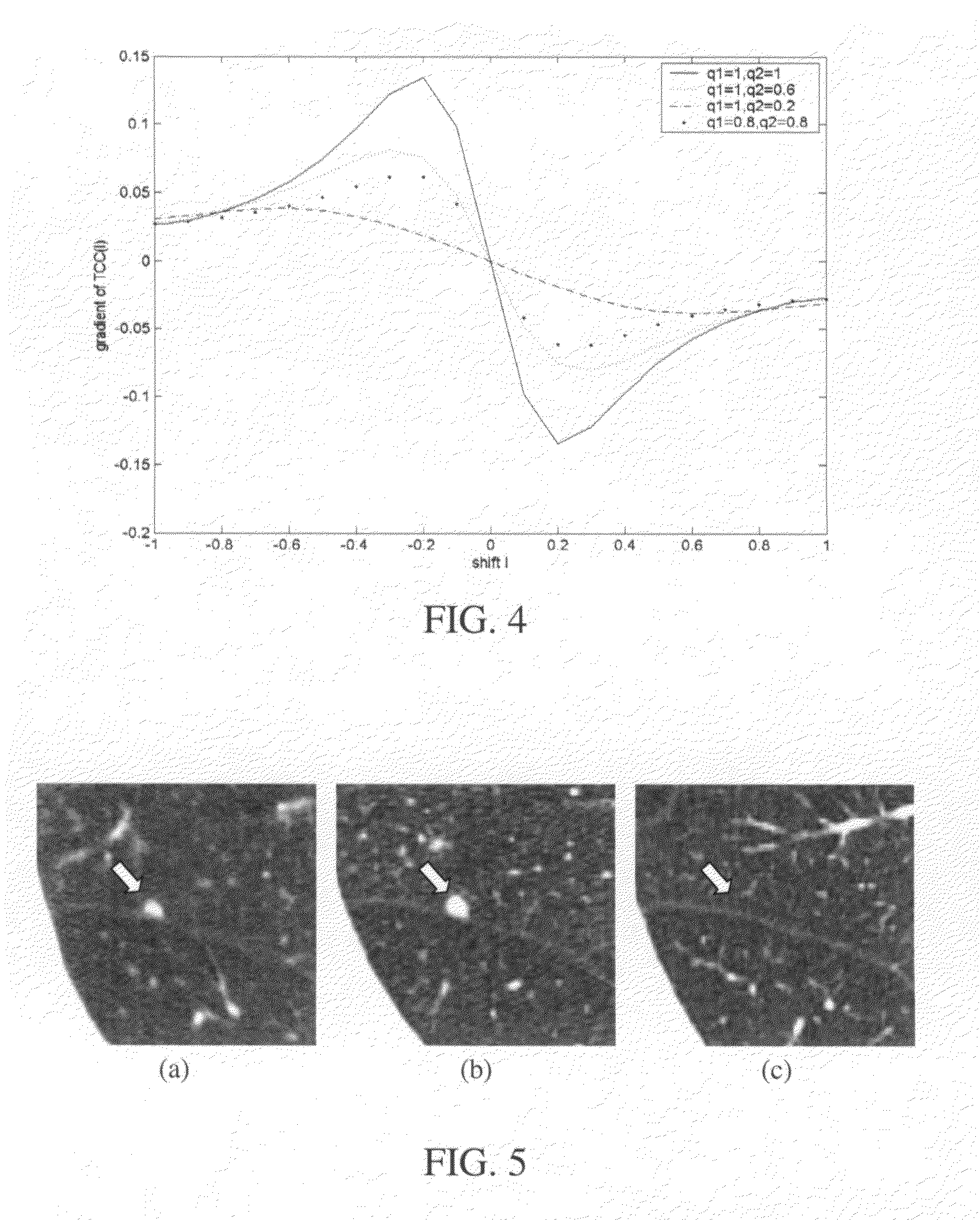Registration system and method for tracking lung nodules in medical images
a technology for lung nodules and medical images, applied in the field of medical imaging, can solve the problems of inability to accurately track lung nodules, inability to accurately identify lung nodules, and inability to complete the process, etc., and achieve the effect of avoiding plateaus in the learning curve, accelerating convergence, and fast and accurate manner
- Summary
- Abstract
- Description
- Claims
- Application Information
AI Technical Summary
Benefits of technology
Problems solved by technology
Method used
Image
Examples
experiment 1
Registration for a Known Non-Affine Transformation
Dataset
[0052]In this experiment, we simulated a second patient scan from a first by transforming the first scan using a non-affine transformation. This scan was acquired using multidetector helical CT and reconstructed with a voxel size of 0.6 mm*0.6 mm*1.25 mm. Because we know the transform beforehand, the true location (ig, jg, kg) in equation (8) for each nodule can be calculated using the known transform.
Simulated Non-Affine Transformation
[0053]In constructing the transformation, we sought to model distortion due to different inspiration points and cardiac pulsation. The non-affine transformation applied consists of a displacement vector field plus a global affine transformation. For an arbitrary point, the transformed coordinate can be calculated through:
(it,jt,kt)=T((i,j,k)+{right arrow over (v)}(i,j,k)), (10)
where (i, j, k) denotes the original coordinate, (it, jt, kt) denotes the transformed coordinate, {right arrow over (v)...
experiment 2
Registration for Real Patient Data
Dataset
[0061]In this experiment, we used 12 pairs of patient scans, and evaluated registration error with both equations (8) and (9). Two radiologists, each with over 10 years experience with pulmonary CT, determined the true locations of the target nodules and matched them. (One found and matched nodules in 5 pairs of scans and the other found and matched nodules in 7 pairs of scans) Altogether, the radiologists detected 93 nodule pairs in the 12 pairs of scans.
Results
[0062]For all the 93 nodules, the registration error evaluated by equation (8) was 1.2 mm±0.88 mm (s.d.), with a worst case error of 4.3 mm; and the registration error evaluated by equation (9) was 0.27±0.18 (s.d.), with a worst case error of 0.85. The mean absolute error in longitudinal (superior-inferior) coordinate was 0.62 mm±0.72 mm s.d, with a worst case of 3 mm. The average registration time per nodule was 0.16 min±0.17 min (s.d.), with a worst case of 0.87 minutes. FIGS. 9 and...
PUM
 Login to View More
Login to View More Abstract
Description
Claims
Application Information
 Login to View More
Login to View More - R&D
- Intellectual Property
- Life Sciences
- Materials
- Tech Scout
- Unparalleled Data Quality
- Higher Quality Content
- 60% Fewer Hallucinations
Browse by: Latest US Patents, China's latest patents, Technical Efficacy Thesaurus, Application Domain, Technology Topic, Popular Technical Reports.
© 2025 PatSnap. All rights reserved.Legal|Privacy policy|Modern Slavery Act Transparency Statement|Sitemap|About US| Contact US: help@patsnap.com



